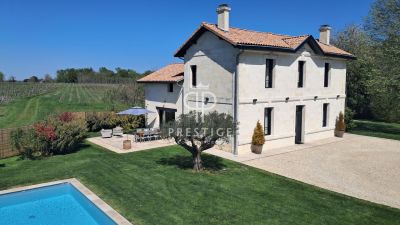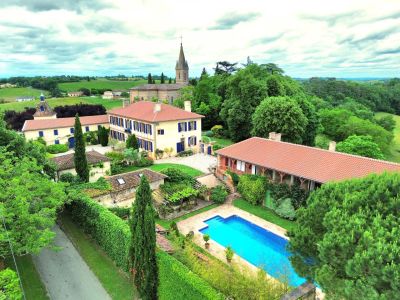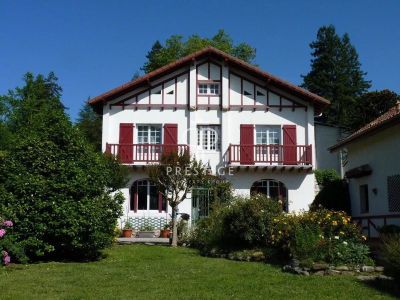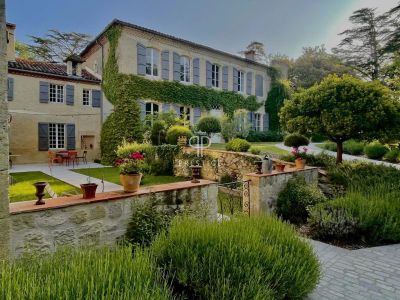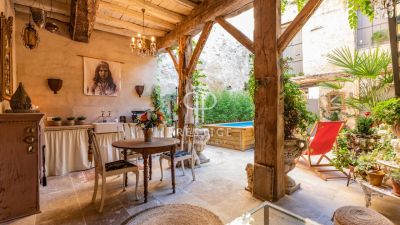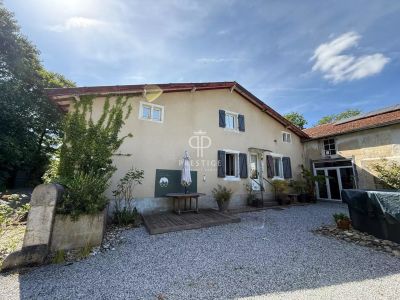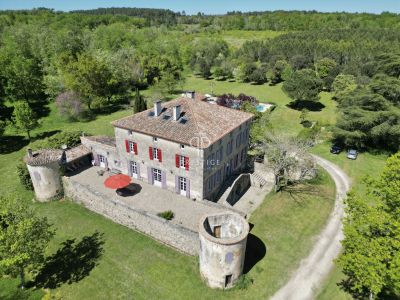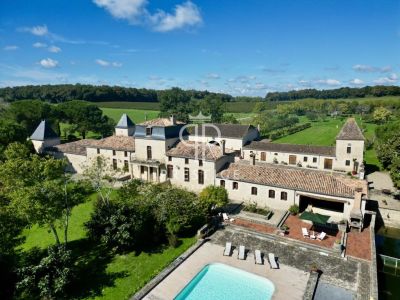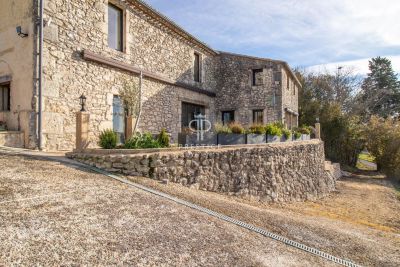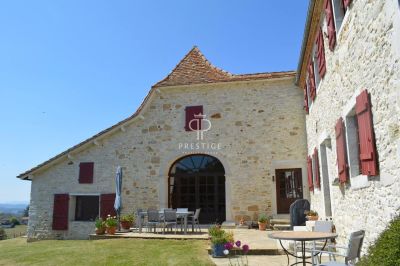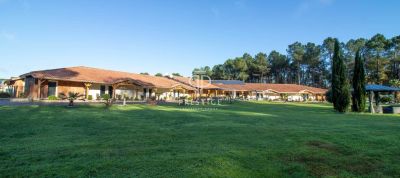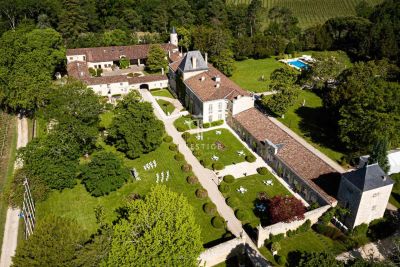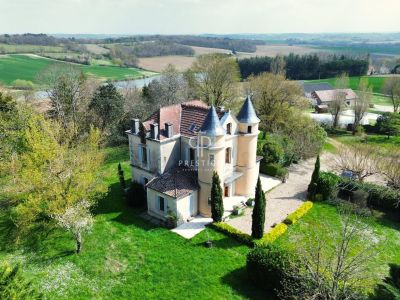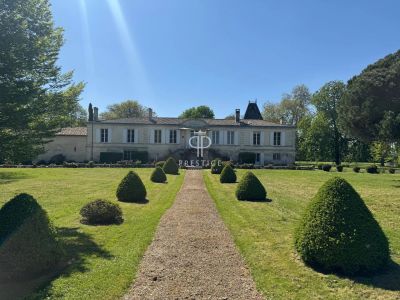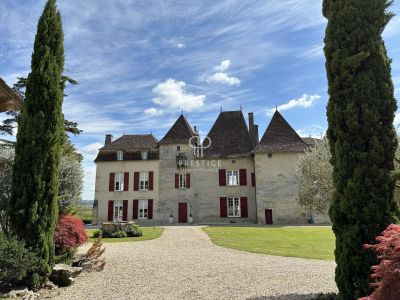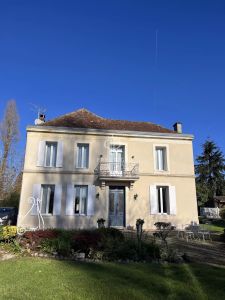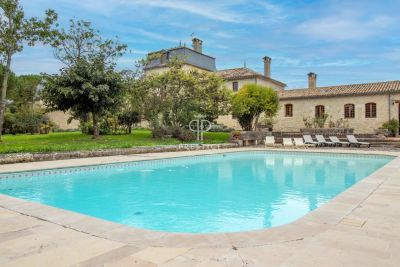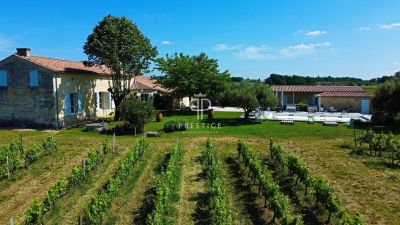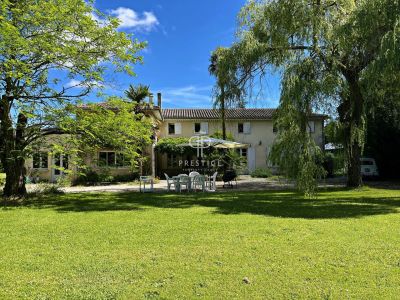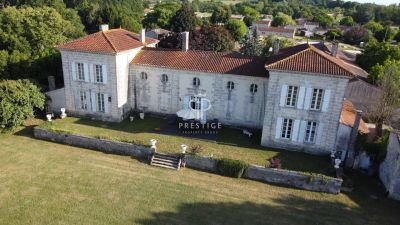Gascony Property For Sale
Area Guide
The Area
Gascony is one of the most delightful and unspoilt parts of rural France, nestled at the foothills of the Pyrenees, with clean air and a mild and refreshing climate. The countryside is dotted with bastides, old watermills and picturesque dovecotes. The towns and villages of Gascony tend to be small and far apart.
This is walker's paradise. The whole beautiful region is one of amazing contrasts - snow capped peaks, startling blue skies, lush green valleys and flower filled meadows. The proximity of Gascony to Spain touches both the culture of the region and the weather; expect hot, sunny days from May to September, occasionally interrupted by rains off the Pyrenees.
This region offers delicious specialities. The finest Fois gras, confits, Madiran wines and vintage Armagnac burden trestle tables over the summer months in villages celebrating the numerous fetes.
Medieval Gascony was frequently contested in the Hundred Years' War. The fortified villages such as Biran, Larressingle and Lupiac are the most picturesque. Lupiac is also the birthplace of D'Artagnan, the fourth musketeer and a statue to his memory stands on a terrace below the Cathedral by the lazy River Gers.
Auch, once the capital of Gascony, is set on a hillside beside the River Gers. Monumental stones lead up its cathedral of Ste Marie with stained glass windows and choir stalls that took forty years to carve.
Activities
Gascony is ideal for cycling and riding. There are golf courses at Eauze and Toulouse. Trout fishing is also popular along with swimming, tennis and horse riding.
For excursions, Toulouse boasts a historic town centre with museums; there is a Cistercian Abbey at Flaran; and the towns of Auch and Lourdes, along with the Pyrenees make interesting days out. A number of festivals take place throughout the season including a Classical Music Festival in Auch and an international jazz festival at Marciac.
Buying a Property in France
1. Signing the Agreement (Compris)
On finding a property you wish to purchase you will need to negotiate the terms, price and conditions of the sale with the owner.
The next step, once you are in agreement, is to sign the preliminary contract (Compromis de Vente). This is a legal document and after ten days will be binding on both parties. Rules change frequently in France and it is best to consult with your notary about when this period starts. Generally the compris will be signed in France with the Agent.
Variants can be included in the compris, for example an Acte (clause) can be added if the name or names to go on the title deed have not been finalised. If a mortgage will be required to purchase the property, the details for this, including the name of the mortgage company, must be on the compris.
2. Paying the Deposit
Generally the deposit will be 10% of the agreed purchase price. This will normally be paid to the notaire. There are exceptions to this, if the agent holds a carte professionelle, is bonded and fully registered then you may pay them, but do not hand over the deposit to anyone else. If for some reason the purchase does not go through, for example, if you write to the notaire and the agent that you do not wish to go continue with the purchase before the contract is binding (within seven days of signing the compris), then your deposit would be repaid. This would also apply if a condition had not been met, or the mayor or S.A.F.E.R. (a government agency that has the right of first purchase on most rural property that comes onto the market in France) could oblige the purchaser to give way. If you decide after the seven days 'cooling off' period that you do not wish to complete the purchase and pull out of the sale you would lose your deposit. If however the vendor pulls out of the sale then you will receive your deposit back plus the same amount from the vendor.
3. On Completion
Generally it will take around two or three months to complete the purchase.
During this time the balance of the purchase money must be paid into the account of the notaire, this must be done well ahead of the completion date. The notaire will prepare the documents, check that the deed of sale (Acte de Vente) is in order and have the legal title ready to be signed over. It is possible to have someone sign on your behalf if you give them power of attorney. An interpreter may be of use at this point if your French is not very good and many Notaires will suggest (or insist) that an interpreter is with you.
